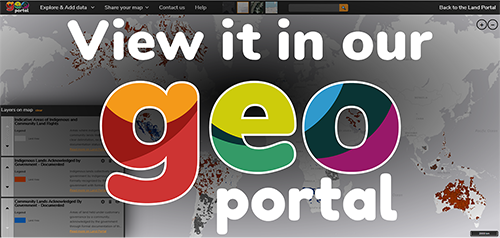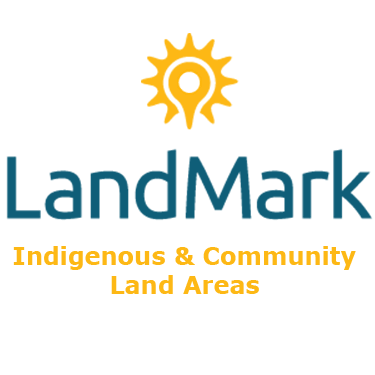Kruimelpad
- Indigenous Lands Not Acknowledged by Government - Held or used with formal land claim submitted
Indigenous lands or territories refer to the collectively-held and governed lands (and natural resources) of Indigenous Peoples. As with other community lands, some indigenous lands may be allocated with group consent for use by individuals and families. Other indigenous land is managed as common property. In some cases, indigenous land is held by individuals or families (e.g., New Zealand). Traditional indigenous territories are estimated to encompass up to 22 percent of the world’s land surface (Nakashima, et al. 2012).
"Not acknowledged by government" refers to indigenous or community land that is not recognized in law or formally set aside for Indigenous Peoples or community occupation or use.
"Held or used with formal land claim submitted" means that the Indigenous Peoples or community has filed a petition or other legal document with the government, including the court, to have their lands formally recognized.
See Community Level Data and Methods page on the LandMark website for more information.
View this data on the Land Portal's Geoportal!
LandMark source: Various. See the attribute box associated with each spatial entity to identify its data source and contributor. For an overview of data sources and providers per country, see the Data Providers page.
Frequency: Data are updated periodically as acquired, reviewed, and standardized.
Caution: LandMark aims to display the best-quality data available from reputable organizations and recognized experts, but does not endorse or verify the accuracy of any dataset. The platform includes maps and data on indigenous and community lands that are publicly available as well as information voluntarily contributed by individuals and organizations with their permission as detailed in a data-sharing agreement. The contributing individuals and organizations, which are documented in the Data Providers page, are responsible for their data. Users are encouraged to report any errors, omissions, or inconsistencies to the LandMark Operations Team (info@landmarkmap.org) and the appropriate data provider. Amendments will be made on a periodic basis. For more information, see Data Quality standards.
Creative Commons Attribution
This license lets others distribute, remix, tweak, and build upon your work, even commercially, as long as they credit you for the original creation. Recommended for maximum dissemination and use of licensed materials.
Platform may be cited as: LandMark. 2017. LandMark: The Global Platform of Indigenous and Community Lands. Available at: http://www.landmarkmap.org/. To cite data sources for individual countries or other areas, see the Data Providers page or attribute box associated with each spatial entity.


